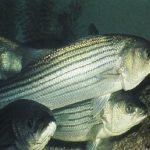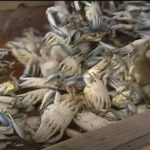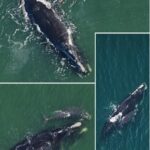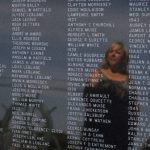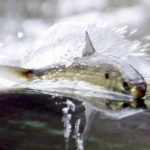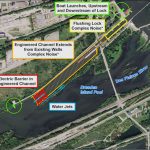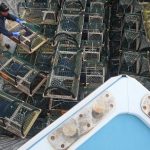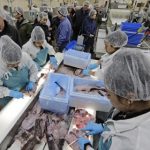Updates to Lobster Industry from Commissioner Keliher
As I have promised before, I want to make sure you are as informed as possible as the situation around right whales evolves. There have been several developments in the last week, many of which speak to the seriousness of the situation. My goal is to keep you informed and to ensure that you have the information necessary to engage in important upcoming conversations.
Maine Lobstermen’s Association V. National Marine Fisheries Service
As you know, DMR is a participant in the lawsuit filed by MLA which asserts that the National Marine Fisheries Service (NMFS) erred by failing to rely on the best scientific information in the Biological Opinion (Bi-Op) released in May 2021 and failed to account for the positive impact from conservation measures previously adopted by the Maine lobster fishery.
Unfortunately, on September 8th, Judge Boasberg sided with NMFS and ruled that NMFS reasonably explained how it estimated right whale populations, NMFS appropriately assessed what was the best available information, and NMFS met the requirements under the Administrative Procedures Act. While this does not preclude NMFS from considering the arguments made by the MLA, DMR and others in the future and choosing to take a less conservative approach to a revised BiOp and rule, the judge will not force NMFS to do so.
I am extremely disappointed by this decision, and I continue to believe that the assumptions NMFS made in the Bi-Op overstate the risk in the Maine lobster fishery. We are evaluating our options at this time, but I can confirm that after consulting with Governor Mills, to leave all our options open, we have directed our legal team to file a Notice of Intent to appeal.
NMFS Announces Scoping Period
On September 8th, NOAA announced a scoping period to consider additional rulemaking measures to achieve a 90% risk reduction in Atlantic coast fixed gear fisheries, including the lobster fishery.
As you will recall, the conservation measures established in the lobster fishery under Phase I were implemented via rulemaking earlier this year. Originally, Phase II was intended to address risk in other trap pot and gillnet fisheries along the Atlantic coast. This would have been followed by Phase III, which intended to consider additional risk reduction in all Atlantic coast fixed gear fisheries, including the lobster fishery.
However, in the recent ruling in the lawsuit between the environmental groups and NMFS (usually referred to as CBD v. Ross, or the CBD case), Judge Boasberg ruled that the final whale rule was invalid because it did not reduce takes below the Potential Biological Removal (PBR), which is the number of individuals that can be lost due to human causes without undermining the sustainability of the stock, within 6 months of implementation.
This ruling has accelerated the timeline for risk reduction over what was initially presented in the Bi-Op. As a result, NMFS has expanded the scope of Phase II to include all fisheries currently regulated under the Atlantic Large Whale Take Reduction Plan.
This means that the lobster fishery will need to achieve a 90% risk reduction under Phase II, as opposed to under Phase III.
NMFS is planning to hold only one, remote, public hearing during the scoping period on September 27 at 4:30pm.
I feel strongly that NMFS should be holding multiple in-person hearings during the scoping period and will continue to request they hold additional meetings. Governor Mills has sent a letter to the Secretary of Commerce demanding that NOAA do their job and face the fishermen that their rules will impact.
Currently this scoping webinar is your only opportunity to communicate directly with NOAA during the development of these measures, so I strongly urge you to understand what is being discussed (as described below and in the scoping notice) and consider providing NOAA with your thoughts about how such measures will impact you and your business. You can learn more and register to attend the scoping hearing here: https://www.fisheries.noaa.
Atlantic Large Whale Take Reduction Team Meeting
Concurrent to the ongoing scoping period, the Atlantic Large Whale Take Reduction team (TRT) is beginning work on achieving the Phase II 90% risk reduction in US fixed gear fisheries.
Based on recent updates and model runs, NMFS has informed the TRT that the measures implemented in May 2022 achieved a 50% risk reduction. Getting to a 90% risk reduction is a significant task, and it will not be easy.
We are facing big changes to fixed gear fisheries (i.e., lobster, gillnet) in Maine, and this could include trap and or endline reductions, closures, and additional weak rope. At the most recent TRT meeting on September 8th, NMFS presented two examples to demonstrate what it will take to achieve a 90% risk reduction.
The first example by NMFS included year-round closures of all fixed gear fisheries in federal waters managed under the ALWTRP from Maine to Florida, in additional to vertical line reductions and weak rope in state waters- this achieved a 94% risk reduction.
A second example included seasonal and area-based closures of fixed gear fisheries, 50% vertical line reductions, and broader weak rope implementation to reach an 89% risk reduction. Specific to Maine, the example included closing federal waters of Zone A and B in June and July, federal waters of Zones C, D, and E October-January, and federal waters of Zones F and G February-March.
I want to re-iterate that these are not actual proposals on the table but were used by NMFS to illustrate the magnitude of measures needed to achieve large risk reductions.
As you can tell from the above examples, achieving a 90% risk reduction is going to be very difficult, and there are going to be significant impacts to the lobster and gillnet industries in Maine. While the above illustrations are just examples, they give you a feel for how extensive the next round of risk reductions may be.
Whatever measures are ultimately implemented, they are likely to impact fishermen in all zones, and the changes are coming fast. The TRT is meeting the week of September 19th to continue developing measures to achieve 90% risk reduction and will meet again in November to vote on measures to put forward for implementation. This timeline is very aggressive and will not allow for the many rounds of discussion that DMR staff had with the industry during the development of the Phase I measures. Governor Mills also pressed Secretary Raimondo for more time to develop these measures so that we can better understand how adverse impacts to Maine’s coastal communities might be lessened, but both the Governor and I strongly doubt that there are any measures that would achieve this draconian reduction that Maine would support. Regardless, we need to be at the table and ensure Maine’s voice is heard.
Seafood Watch Red Listing
On September 5th, the Monterey Bay Aquarium’s Seafood Watch program released new ratings assigning ‘red’ listings to a number of fixed gear fisheries, including the lobster fishery in Maine.
Seafood Watch claims the basis for this decision is the critical status of the North Atlantic Right Whale, and that current management measures (in both Canada and the U.S.) do not go far enough to mitigate risk of entanglement in fishing gear.
Seafood Watch has ignored the information that DMR has provided on behalf of this industry, including that there has not been a right whale entanglement attributed to Maine lobster gear in eighteen years, and no deaths ever attributed to Maine lobster gear. Seafood Watch has also not considered recent conservation measures enacted within Maine’s fishery, or that more measures will be implemented soon.
I am outraged by this decision and will continue to urge consumers to recognize the industry’s longstanding commitment to right whale protection and sustainable harvesting. Similarly, Governor Mills continues to advocate for Maine’s lobster industry and in a strongly worded letter to Seafood Watch, the Governor along with Maine’s Congressional Delegation have called for the listing to be reversed.
What is DMR Doing to Help?
After all that background, the question that I get most often these days is “What is DMR doing?”. In summary:
- Our legal team is working very hard on behalf of the industry and is coordinating closely with MLA’s legal team to understand the ramifications of Judge Boasberg’s most recent decision in the MLA case and explore available options. DMR’s legal team will be filling an intent to appeal in this case in the coming days.
- DMR is still working with our attorneys on our remedy brief that will be submitted to the court on the CBD v. Ross case in early October.
- DMR secured $3 million dollars as proposed by Governor Mills in her biennial budget to help cover our growing legal costs.
- DMR and Governor Mills have told NOAA and the U.S. Secretary of Commerce that the current federal scoping plans are insufficient to solicit good industry input into a situation of critical importance to the entire coast of Maine and have asked for this decision to be revisited.
- DMR has been requesting access to the updated Decision Support Tool (DST), so that we can do our own analysis of potential risk reduction scenarios and with the help of industry members, look for those solutions that minimize the impacts of these federal actions to the greatest degree we can. NOAA continues to deny us access to this updated tool stating that it is not yet peer-reviewed. Ironically, just two years ago NOAA gave us access to a previous version of the same tool, before it had been peer-reviewed.
- Governor Mills and Maine’s Congressional Delegation have called on Seafood Watch to reverse their decision on the status of Maine lobster. DMR will continue to work with the Maine Lobster Marketing Collaborative to share the real information about this industry’s stellar track record in lobster conservation and the many sacrifices already made on behalf of right whale protection.
Going forward, I promise to continue to keep you all updated and will be as transparent as possible about this evolving situation. In that spirit, DMR will be holding an in-person meeting of the Lobster Advisory Council meeting on September 26th to discuss the scoping and TRT process, and anticipated changes. If you have questions, please feel free to reach out to my office, and we will do our best to help.
Sincerely,
Pat
This message is for information only. For questions, please feel free to contact Lorraine at the information below.
Lorraine Morris
Maine Department of Marine Resources
21 State House Station
Augusta, ME 04333
[email protected]
(207) 441-5319 www.maine.gov/dmr
Update your subscriptions, modify your password or email address, or stop subscriptions at any time on your Subscriber Preferences Page. You will need to use your email address to log in. If you have questions or problems with the subscription service, please contact Help.
This service is provided to you at no charge by Maine Department of Marine Resources.



































